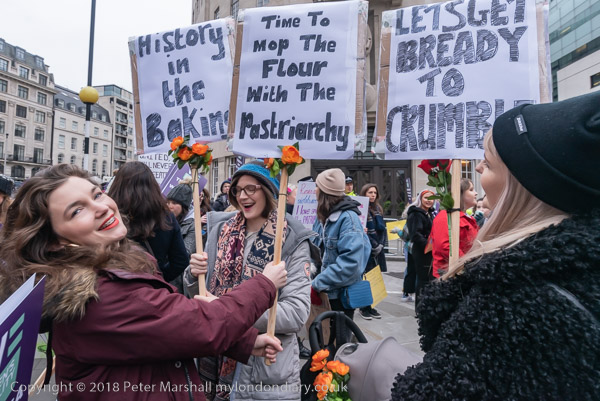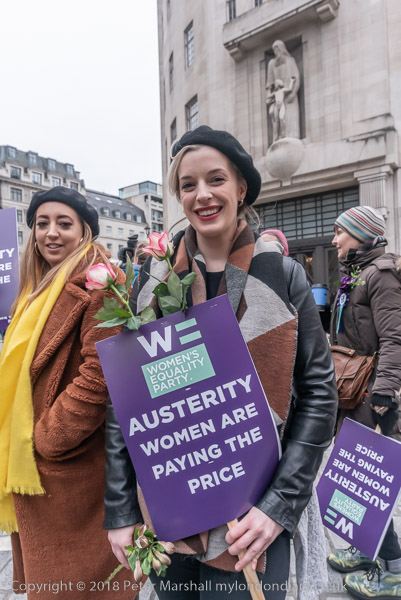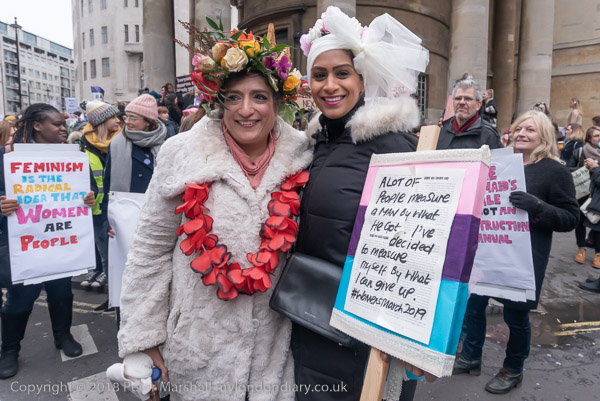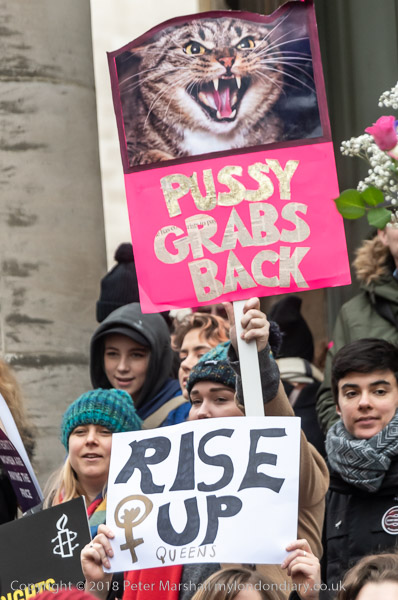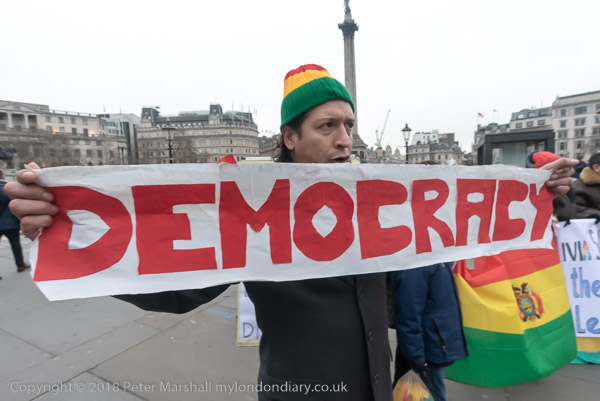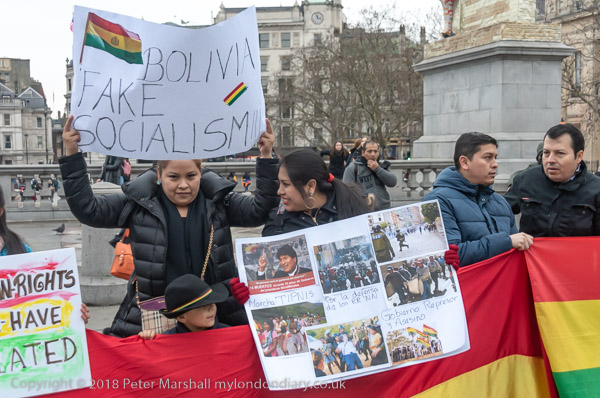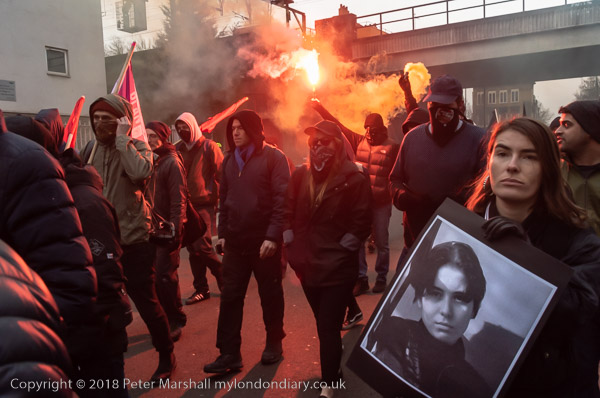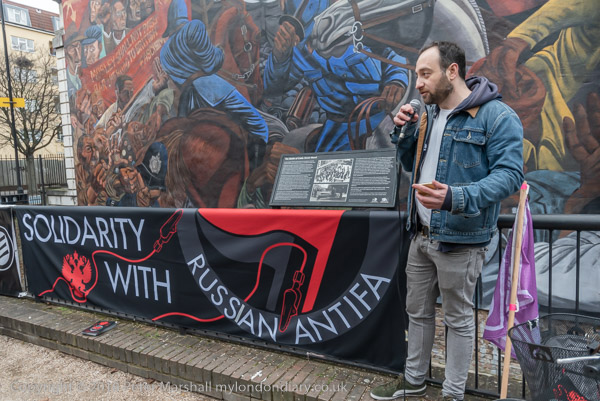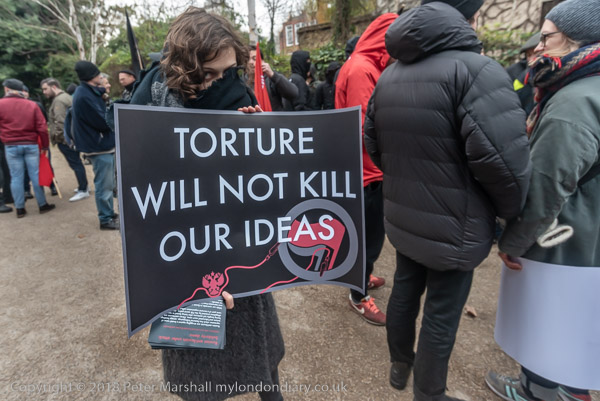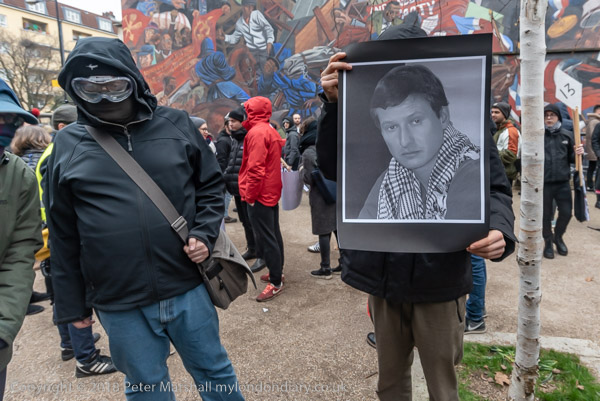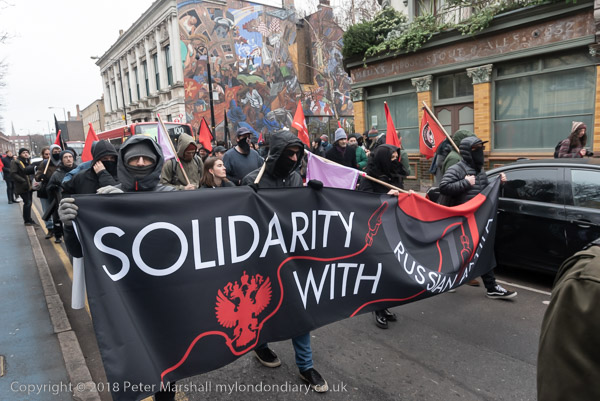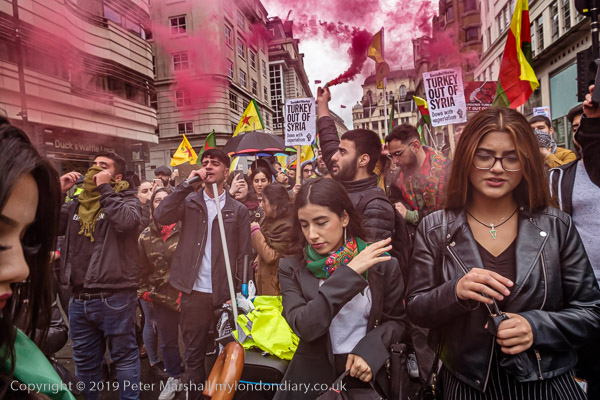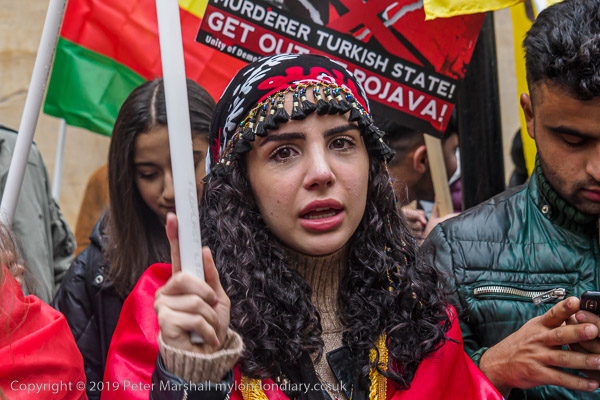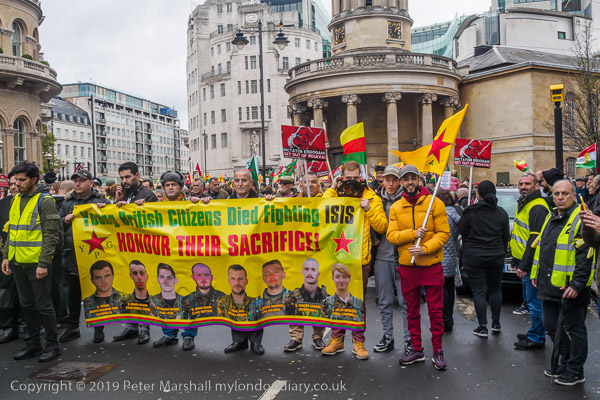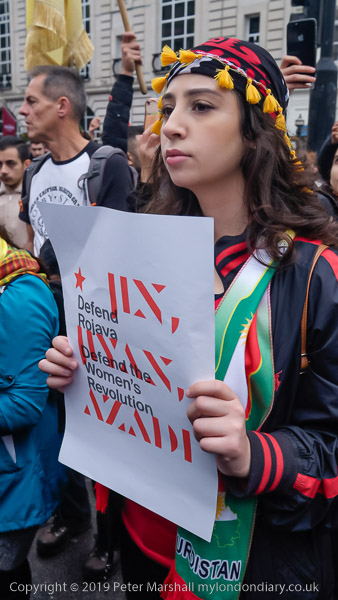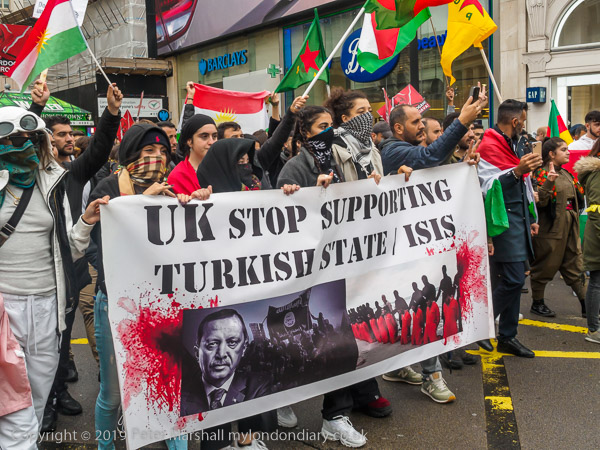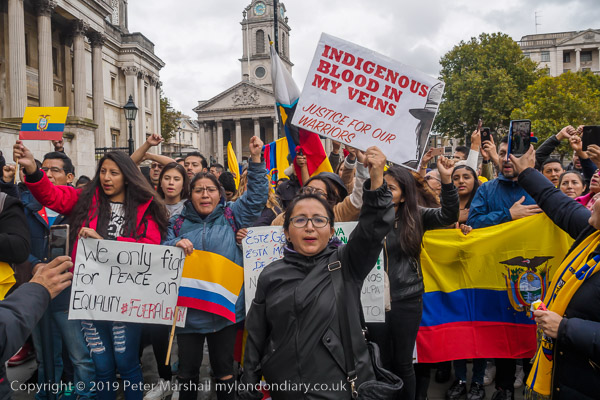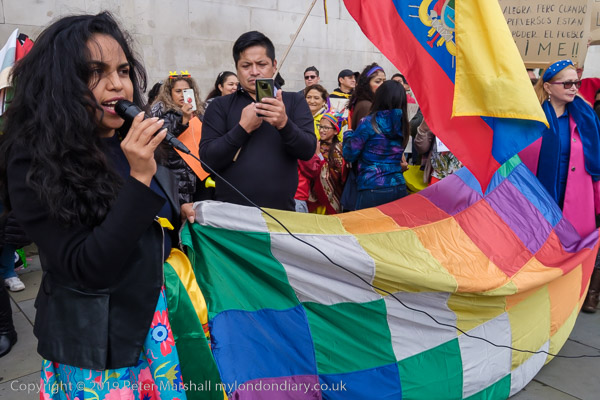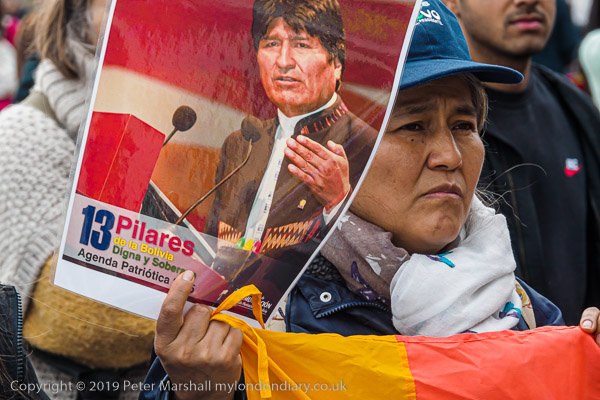Saturday 23rd February 2019 seems now a long time ago. Although it’s only four years ago it was in the pre-Covid era. It was a busy day for me.
Stop Trump’s Venezuela gold & oil grab – Bank of England.
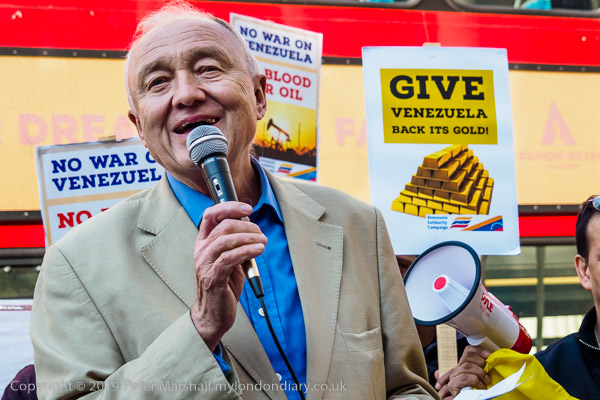
A protest outside the Bank of England calls for the bank to return the $1.3 billion of Venezuelan gold (31 tonnes) to the Venezuelan government and for an end to the US-backed attempted coup.
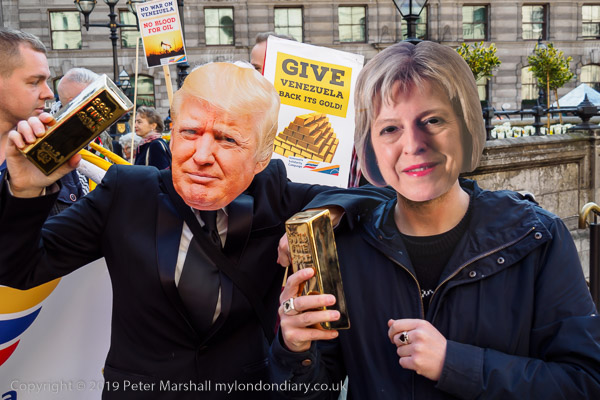
Right-wing opposition leader Juan Guaido, illegitimately recognised by our government as President, has written to Theresa May calling for the funds to be sent to him. Among the speakers were former London Mayor Ken Livingstone and Kate Hudson of CND.
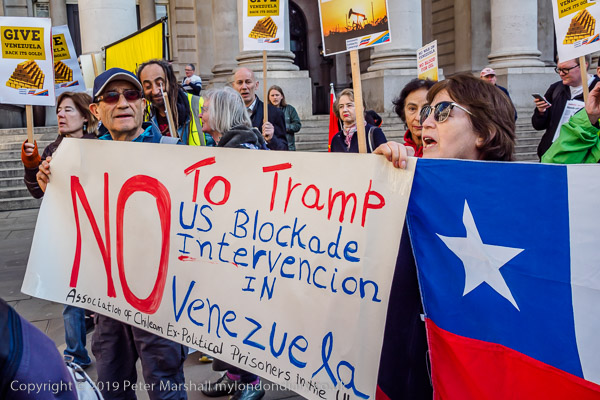
Venezuela’s 32 tons of gold are still held in the Bank of England, with the High Court’s latest decision in July 2022 based on the UK foreign secretary’s ambiguous statement about Maduro’s legitimacy as president refused to hand the gold back to its owners.
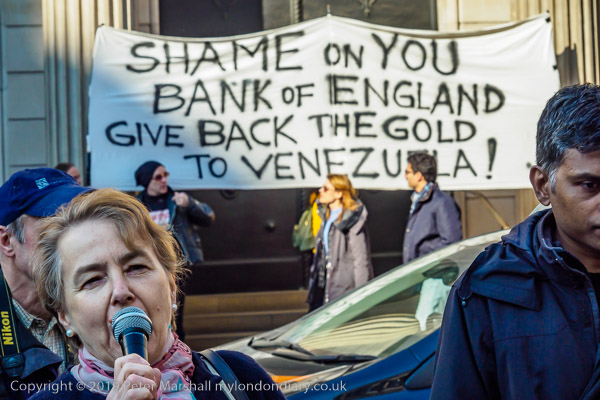
More pictures at Stop Trump’s Venezuela gold & oil grab.
Sudanese support non-violent uprising – Trafalgar Square
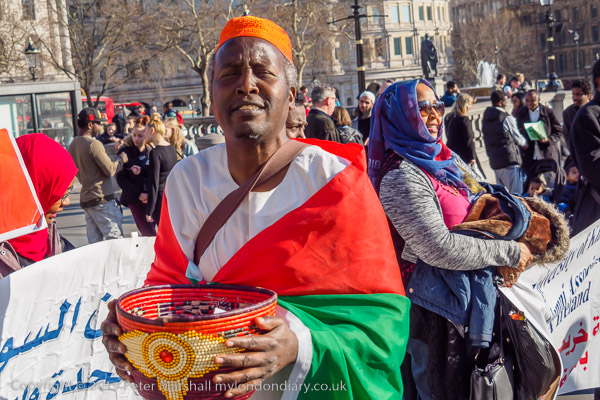
Sudanese in Trafalgar Square support the peaceful protests in Sudan which began in December calling for democracy and for President Omar Al-Bashir to step down.
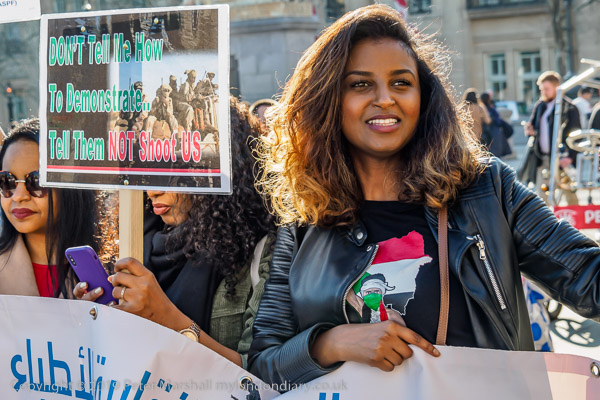
Eventually in April 2019 Al-Bashir was forced out of office, and later many of his supporters were sacked. But protests continued in Sudan against the military regime and following another coup in Octorber 2021 the country remains in conflict.
More pictures Sudanese support non-violent uprising.
Yellow Jackets continue protests – Westminster
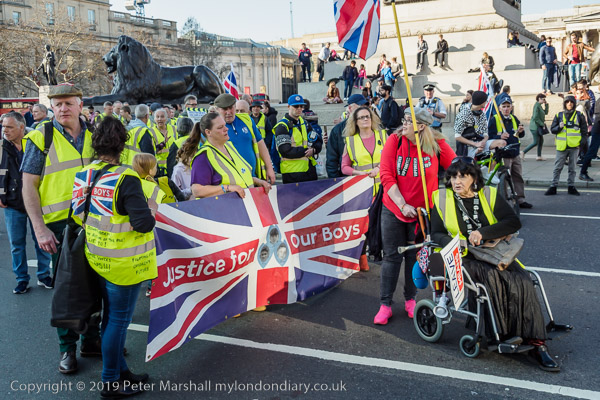
Every weekend around this time a small group of Right-wing pro-Brexit extremists wearing yellow jackets were out protesting in Westminster for several hours, walking along the street and disrupting traffic, accompanied by a number of police.
They were angry at the slow pace at which Brexit was taking place and the failure of the EU to accede to every UK demand and play dead with its legs in the air. The Leave campaign had made great promises, none of which were achievable but which had conned the public into voting for it, and had stirred up a wave of xenophobia and racism – and this was one of its results.
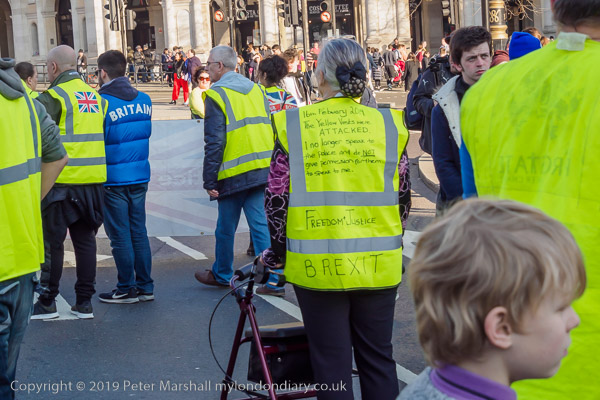
Another was of course the election victory at the end of the year which led to Boris Johnson becoming Prime Minister – thanks to the help of Keir Starmer who effectively sabotaged the Labour Party’s vote. Johnson pushed through an agreement which apparently he hadn’t even read and which we are still seeing the problems from in Northern Ireland.
Although I voted to remain in Europe, I can see there were some valid complaints about our membership – but these were not what the Leave campaign was fought on. Instead they pursued a course based on lies and self-interest..
Yellow Jackets continue protests
Bolivians protests against President Morales – Parliament Square
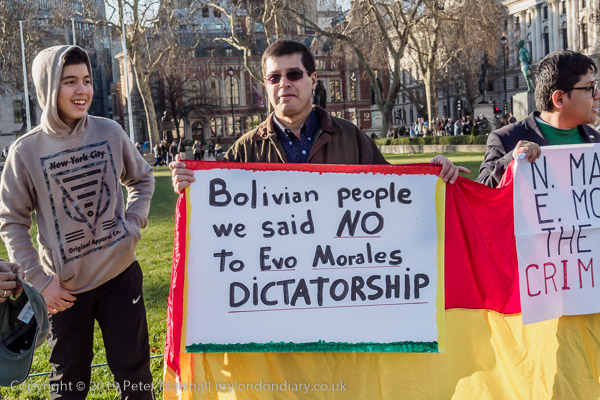
Bolivians were in Parliament Square to protest against President Evo Morales, saying he is a dictator and accuse him of corruption and interfering with the court system to remain in power.
Morales was a labour leader and activist who became the first from the indigenous population to become president in 2006. Under his leadership there were huge gains in legal rights and social and economic position for the indigenous poor in the country.
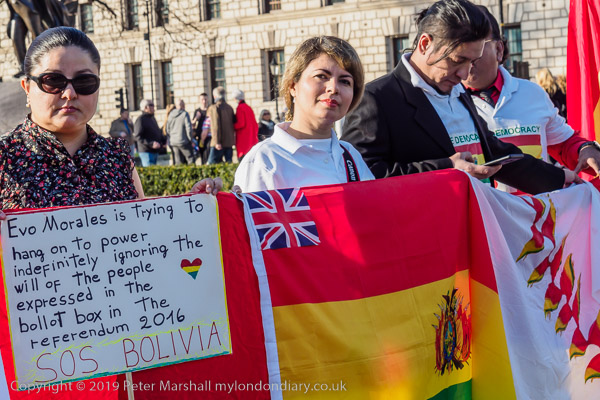
Some of those gains were at the expense of the middle classes who had been used to ruling the country, and much of the opposition to him came from them and from their international friends, particularly in the US his opposition to neoliberalism as a dangerous example to other south American countries. Almost all press reports on Bolivia (and other countries) reflect the views of the urban middle classes rather than the people as a whole.
The constitutional question to some extent cut across communities in the country and although his standing for a fourth term as approved by the Electoral Tribunal it went against a 2016 referendum which had narrowly rejected by 51.3 to 48.7% of the votes. Like Brexit a slim majority.
Violent protests continued after Morales was forced into resigning in what his supporters called a coup d’état in November 2019, though others describe it as an uprising against his unconstitutional attempt to be president for a fourth term. Protests continued to get him reinstated and were met by violence from the security forces who were exempted from any criminal responsibility by interim president Jeanine Áñez.
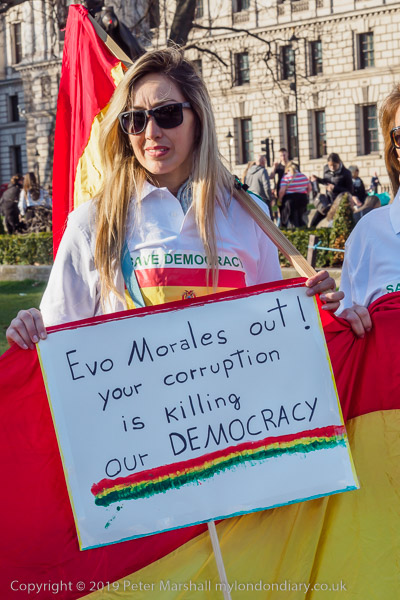
A new election took place after two delays in October 2020, and resulted in a landslide victory for Morales’s Movement for Socialism (MAS) party now led by Luis Arce who was sworn in as President of Bolivia the following month. One of the new government’s first actions was to return a huge loan to the IMF taken out by Áñez in order to protect Bolivia’s economy from its unacceptable conditions.
In 2021 Áñez was arrested and in 2021 she and others were sentenced to 10 years for making “decisions contrary to the constitution”” and “dereliction of duty” for her role in the coup. Other cases are still being brought against some of those involved and protests against this continue.
Bolivians protests against President Morales
Leake Street graffiti
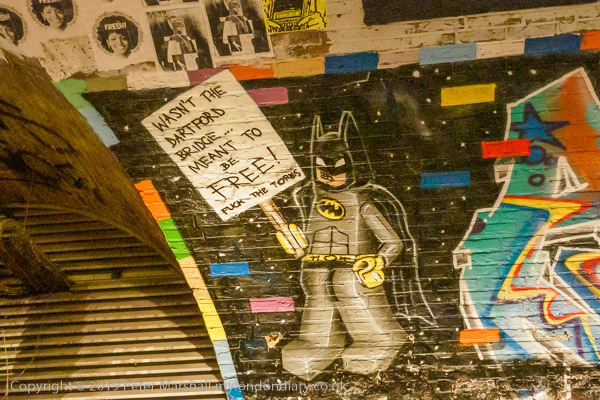
As I was approaching Waterloo Station I realised I had just missed a train home and would have to wait over 20 minutes for the next one so I decided to take a longer route through the tunnel under t he tracks coming out of the station to take another look at the graffiti there.
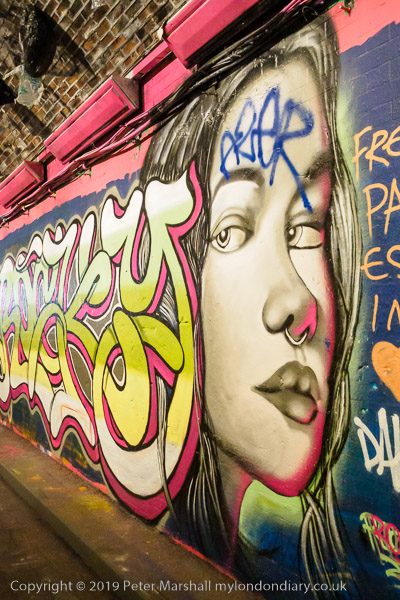
This is one of the few places in London where graffiti is allowed and encouraged, with space for some large and sometimes very intricate designs. Few last for long before they get painted over with new work, though those on the ceiling usually last a little longer.
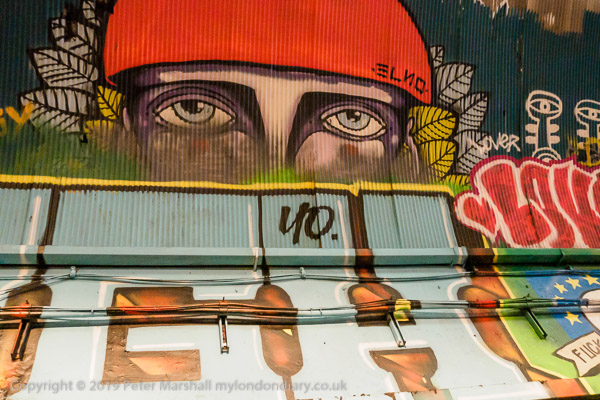
More at Leake Street graffiti.
